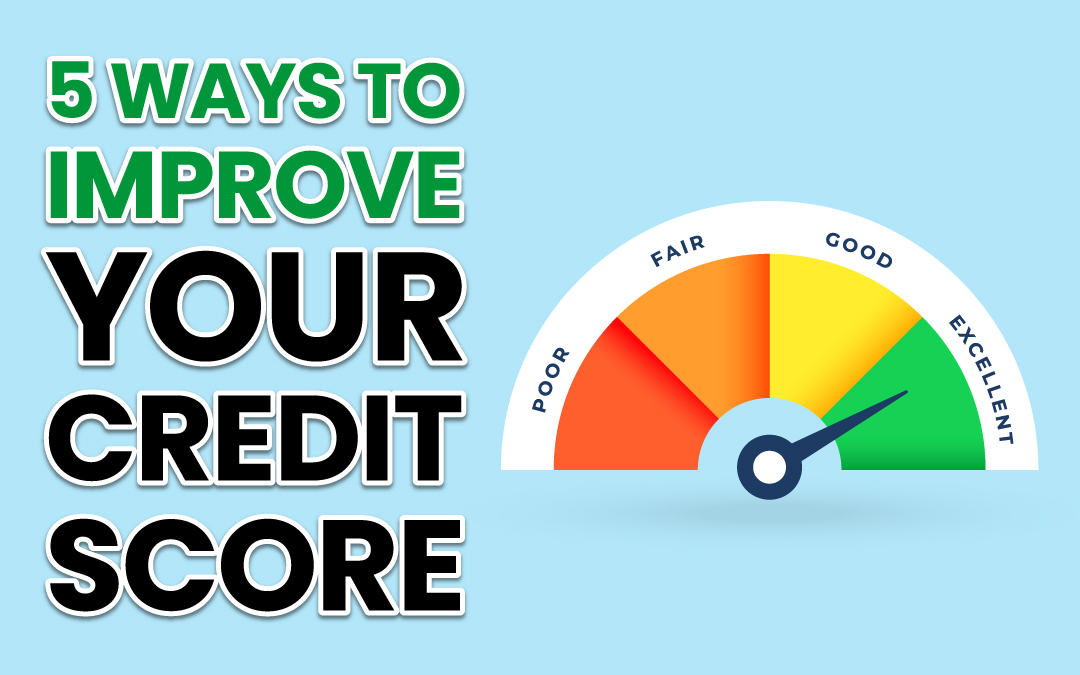
A good credit score enables you to get loans and credit cards without much difficulty. If you have a low credit score, availing credit can be very difficult. To improve your credit score, you need to fix errors in your credit report and further responsibly manage the available credit. Most of you must be aware of the fact that there is no instant way to increase your credit score, as it takes time and improves gradually.
Every borrower knows that a higher credit score makes it easier to avail funds at favorable interest rates. However, do you happen to know how to improve your credit score? You can read on to get useful information if you are struggling to enhance your credit score or you would want to boost it to negotiate on better borrowing options.
Ways to Increase Your Credit Score
Your credit score can start improving over time if you diligently follow the tips mentioned below:
Pay All Your Bills on Time
Pay off all your loan EMIs and credit card dues in time to avoid any dip in your credit score. You can set up automatic payment reminders or Standing Instructions (SI) with your bank so that you never miss your due date.
Your payment history contributes 35% of your credit score, which is the largest among other components. The other credit report components, along with its contribution, include amounts owed 30%, length of credit history 15%, new credit 10%, and credit mix 10%. Even if there is a single missed payment, it negatively affects your credit score. You might be aware that a missed or late payment stays on your credit report for up to 7 years, and it might lower your credit score.
Check your Credit Reports for Errors
Checking your credit report regularly for errors can make a huge impact on your credit score. For this, you need to first check your credit score online from the leading Credit Information Company to know your eligibility and further check your credit report for errors.
Try finding all the minor or major errors that could be in the form of mismatched details, incorrect personal information, or faulty reports and resolve them at the earliest by raising an online dispute with your respective credit bureau.
Keep Your Credit Balances Low
Credit Utilization Ratio is the ratio of credit utilized to the total available credit limit. Having a high credit utilization ratio shows your overdependence on credit. Any tough financial situation may drive you towards default in such conditions. It is recommended to keep your debt manageable in such a way that your credit utilization ratio remains below 30%. Try to pay off your credit card dues in time every month, if not, then try minimizing your credit utilization. For example: If you use a credit card that has a total limit of $20,000, then its balance should be below $6,000 or even less.
Avoid Closing Your Old Accounts
Try not to close your oldest credit accounts or credit cards, even if you are not using them, as closing your credit account would reduce your account age, which can impact your credit score. Manage your credit accounts with small purchases or deposits to ensure they remain active.
Think Twice Before Borrowing
Availing fresh credit can enhance or diminish your credit score, if not handled responsibly. It has been observed that borrowers availing multiple credit products in a short duration are at higher risks, as compared to others with fewer accounts for longer tenure.
When you apply for a new loan or credit card, your credit score takes a hit as your repayment capacity reduces to a certain extent. Once you start repaying your loan amount in time, your credit score starts recovering and eventually improves.
If you are considering refinancing your existing loan to manage your finances better, comparing home loan refinance rates can be a wise move. Evaluating these rates helps you secure a better deal and potentially reduce your monthly financial burden while improving your overall credit profile.
Key Takeaways
Repairing errors in your credit report and managing your finances responsibly are the two utmost tasks to improve your credit score. The length of your credit history also contributes to improving your credit score. It may take from 6 to 12 months to build a credit history from scratch, and it shall later help you to avail yourself of credit.
Your high credit score opens various negotiation options with potential lenders if you are planning for a home loan, personal loan, business loan, or credit card. If you are already paying your credit dues on time, then you are on the right path. If not, then try following these measures to improve your credit score and lead a financially secure life.
Share this post
Leave a comment
All comments are moderated. Spammy and bot submitted comments are deleted. Please submit the comments that are helpful to others, and we'll approve your comments. A comment that includes outbound link will only be approved if the content is relevant to the topic, and has some value to our readers.

Comments (0)
No comment